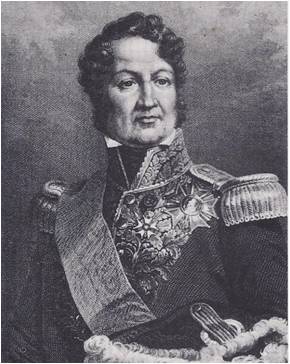IN THE spring of 1933, as the New Deal roared into action, business began to get better, but it dropped again and as 1933 ended and a new year began, even the most optimistic New Dealer had to admit that the depression was still on. During 1934, the government took further steps to regulate banking and finance‚ but some Americans were dissatisfied. Businessman complained that the government was making it harder to do business. In spite of all the excitement, the NRA was not working out well. The farmers were complaining that prices of farm products were still too low. …
Read More »Tag Archives: National Guard
The Revolution of 1848; 1830-1848
LOUIS PHILIPPE always spoke of himself humbly as the “citizen king.” Although he was dignified, friendly and tried to do things that would make him popular, his government could not satisfy the needs of the people. The reason was that only one out of every thirty Frenchmen had the right to vote. The Chamber of Deputies represented only the nobles and the rich upper crust of the middle class and often it did not even debate questions that were of importance to the great majority of the people. Many Frenchmen did not like the new king. The republicans were opposed …
Read More »Democracy in France 1815-1830
AFTER THE fall of Napoleon, Louis XVIII came to the throne of France. Although his powers were limited, by following a middle-of-the-road policy he was able to rule peacefully until his death in 1824. His brother, Charles X, then became king and soon began using his influence to undo as much of the French Revolution as possible. He was able to have laws passed which required the government to pay large sums of money every year to the nobles whose land had been taken from them during the revolution. The Catholic Church was strengthened and once again priests began teaching …
Read More »The Fall of King Louis 1789-1793
“Down with the King!” That cry was heard again and again on the night of August 9, 1792, as restless mobs gathered in the streets of Paris. They had only one purpose in mind and that was to make certain the king was toppled from his throne. The Assembly had been warned to dispose of the king before midnight and that deadline was only hours away. If the Assembly failed to act, the mobs would join forces, march on the royal Palace and seize the king themselves. As the midnight deadline approached, the frightened members of the Assembly were still …
Read More »“The King to Paris!” 1789
In the towns and cities of the provinces, the news of the fall of the Bastille led to wild celebrations and a series of revolts against local governments. These governments had long been unpopular, since most of them were controlled by nobles and others who had bought their government positions from the king. The town people set up new governments, similar to the one in Paris and organized local units of the National Guard. The revolution spread to the countryside as well. There the peasant uprising had started even before the fall of the Bastille. The peasants made up at …
Read More »The Fall of the Bastille 1789
On Sunday, July 12, 1789, the people of Paris learned that Necker, the popular minister, had suddenly been dismissed by the king. They could only guess at the king’s reasons for wanting Necker out of the way. It seemed clear enough that Necker’s dismissal had something to do with the recent arrival of Swiss and German troops in the Paris area. It was said that more troops were arriving every day. Why? People were almost afraid to guess at the answer. The news of Necker spread quickly and angry crowds gathered in the streets. A young man named Desmoulins leaped …
Read More »




